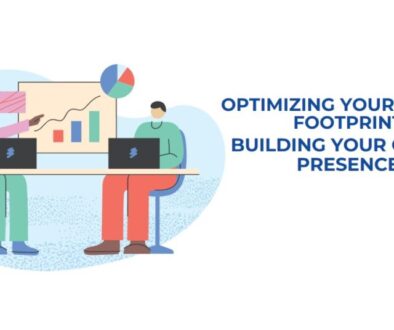Why Modern Businesses Can’t Afford to Ignore Logistics Technology
Take Your Warehouse Operations to the Next Level with WMS Technology
Are small business owners or logistics managers struggling? They are struggling to keep up with rising orders and customer demands. In today’s hyper-competitive business world, efficiency isn’t optional—it’s essential. Companies in all industries are recognizing that streamlining logistics is key. This is especially true in the complex warehouse ecosystem. It can unlock greater profits and beat the competition. At the heart of this logistics revolution lies technology. Specifically, it’s Warehouse Management Systems (WMS). WMS software is no longer a luxury for big companies. It is quickly becoming vital for businesses of all sizes. This is especially true for small to medium-sized enterprises. They want to optimize warehousing and succeed in the modern marketplace.
The Hidden Costs of Inefficiency: More Than Meets the Eye
Imagine a warehouse operating on outdated, manual systems. Tracking inventory is prone to human error. This leads to costly stockouts or unnecessary overstocking. Inefficient order-picking routes mean wasted time and decreased productivity. A lack of real-time data hinders informed decision-making. It leaves managers in the dark about critical parts of their operations. This scenario doesn’t just impact the bottom line; it creates a ripple effect:
- Lost Revenue: Stockouts lead to lost sales. They also upset customers, who may go elsewhere. Studies show that 8% of shoppers abandon their carts due to items being out of stock. Industry reports have more info on this. They cover the impact of bad warehouses on revenue.
- Increased Costs: Inefficient processes waste time, labor, and resources, ultimately driving up operating costs. Research indicates that inefficient warehouse operations can decrease profits by as much as 20%. For businesses looking to enhance their overall marketing efforts, exploring the magic of social media marketing can be a game-changer.
- Delayed shipments: inaccurate orders, and poor customer service can harm a company’s reputation. They erode customer trust.
The WMS Solution: A Warehouse Transformed
A strong WMS is the brain of a modern warehouse. It brings order, automation, and smarts to every stage of the process. A WMS offers tools to optimize operations. It does so from the moment goods arrive at the loading dock to their final dispatch.
- Real-time Inventory Visibility: Real-time Inventory Visibility has replaced the old ways. We no longer rely on manual stock checks and inaccurate spreadsheets. A WMS provides an up-to-date view of inventory levels across many locations. It enables accurate forecasting, just-in-time inventory management, and lower carrying costs. For example, a clothing retailer reduced inventory costs by 15%. They did this after adding a WMS.
- Optimized Storage and Picking: Space is a precious commodity in a warehouse. WMS software uses smart math to find the best storage spots for each item. This makes the most of space. It also optimizes picking routes. This minimizes travel time for warehouse staff and speeds up order fulfillment. Imagine pickers walking 20% less – that’s what route optimization can do!
- Streamlined Order Fulfillment: A WMS automates the whole fulfillment process. It combines seamlessly with existing order management systems. The system issues orders for picking without delay. Generate packing slips. Print shipping labels. Carriers are notified. This ensures timely and accurate delivery to customers. One company saw a 10% increase in on-time shipments after implementing a WMS.
- Enhanced Labor Management: A WMS can track worker performance. It can also monitor productivity and optimize labor allocation. This ensures that the right people do the right tasks at the right time.
- Data-Driven Insights: Knowledge is power, and a WMS provides it in abundance. It captures and analyzes lots of data on warehouse operations. This provides valuable insights into key performance indicators (KPIs). These insights help businesses find bottlenecks. They also track trends and make data-driven decisions. This is for continuous process improvement.
Beyond Implementation: Choosing the Right WMS Partner
Selecting the right WMS is not a one-size-fits-all proposition. You must partner with a provider that understands your specific business needs. They must offer a system that aligns with your long-term goals. Key factors to consider include:
- Scalability is key: As the business grows, the WMS should scale well. It should handle rising order volumes, growing product lines, and changing needs.
- User-Friendliness: A complex, difficult-to-use system can hinder adoption and productivity. Choose a WMS with a simple interface. It should have easy-to-understand features. It should also have thorough training and support resources.
- Integration Capabilities: It must be seamless with existing ERP, CRM, and other business systems. This is vital for unified data and smooth workflow across the organization.
- Industry Expertise: Look for a WMS provider with a proven track record in the industry. They should understand the specific challenges and requirements.
The Future of Logistics is Here: Take Action Today!
Today’s business world is changing fast. It has rising customer expectations, shrinking margins, and tough competition. Optimizing warehouses is no longer optional. It’s a matter of survival. Investing in a powerful WMS is a strategic choice. It can turn a warehouse from a cost center into a competitive advantage. A WMS helps companies streamline operations. It cuts costs and helps them work better. It also leads to great customer experiences.
Don’t wait until you’re drowning in chaos and lost revenue. Take action today! Contact a good WMS provider. Learn how they can transform your warehouse. It can go from a potential liability to a powerful asset. It will drive efficiency, profitability, and customer satisfaction. And as you explore the future of logistics, discover how technologies like blockchain are reshaping global logistics and creating even more efficient and transparent supply chains.
Frequently Asked Questions about Warehouse Management Systems
- What is a Warehouse Management System (WMS)? A WMS is a software solution. It is designed to manage and improve warehouse operations. It does this by tracking inventory and fulfilling orders. It also handles labor management and data analytics.
- How much does a WMS cost? The cost of a WMS varies widely. It depends on the business’s size. It also depends on the complexity of its operations and the needed features.
- What are the key benefits of implementing a WMS? Key benefits include: better efficiency and lower costs. Also, improved inventory accuracy and better order fulfillment. They also support better decision-making with data analytics.
- How long does it take to implement a WMS? Timelines for implementation vary. They depend on the system’s size and complexity. They also depend on the business’s readiness for the new technology.



